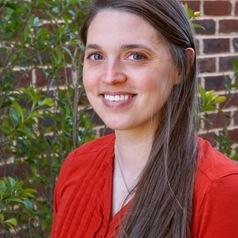
Ali Dubin
Lecturer in Non Profit Leadership, Clemson University
Ali Dubin is a graduate of the Department of Parks, Recreation, and Tourism Management at Clemson University in Community Recreation, Sport, and Camp Management. She is a lecturer in Non-Profit Leadership and a Hospitality Certificate Program for Clemson University. Her research focuses on issues in camp administration and camp healthcare, with a specific focus on children with Severe Food Allergy and the constraints to participation that they face.
Less ![]()
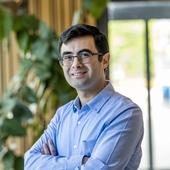
Ali Elham
Professor of Design Optimisation, Department of Aeronautics and Astronautics, University of Southampton
Less ![]()

Ali Gohary
Lecturer (Assistant Professor Equivalent) of Marketing, La Trobe University
Ali Gohary is a lecturer (equivalent to Assistant Professor) in Marketing at the La Trobe Business School, La Trobe University, Melbourne, Australia. He joined La Trobe Business School in June 2023. Dr. Gohary holds a PhD in Marketing from Monash Business School, Monash University. His research interests focus on consumer psychology in domains of health and well-being, ethical consumption, and cross-cultural studies. His research has been published in ABDC A* and A journals such as the Journal of Business Research, European Journal of Marketing, Journal of Advertising, Journal of Consumer Behaviour, Journal of Travel Research, and Annals of Tourism Research, among others.
Less ![]()

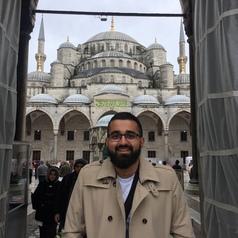
Ali Hammoud
PhD candidate, Western Sydney University
Ali Hammoud is a PhD candidate at Western Sydney University. He is broadly interested in Shīʿīsm and Islamicate intellectual history. His doctoral project examines Maḥbūb al-Qulūb, a little-known doxography authored by 17th century Shīʿī philosopher Qutb al-Dīn Ashkivarī. He has published “Interpretations of Qurʾānic Violence in Shīʿī Islam,” in Violence and Peace in Sacred Texts: An Interreligious Perspective, edited by Maria Power and Helen Paynter, 165-186, Basingstoke: Palgrave Macmillan, 2023 and “That I May Unfold The Pain Of Yearning.” Sydney Review of Books, 2023.
Less ![]()
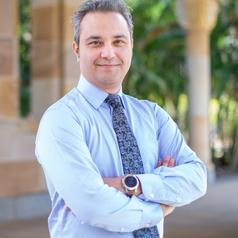
Ali Intezari
Senior Lecturer in Management, The University of Queensland
Ali Intezari is a Senior Lecturer at UQ Business School, University of Queensland, Brisbane, Australia. He specializes in the study of Decision-making, Knowledge Management, and Wisdom with a focus on the impact of emerging technologies on human decision-making. His peer-reviewed research appears in the very top international journals such as Decision Sciences, International Journal of Information Management, Internet Technology & People, Journal of Knowledge Management, Communications of the Association for Information Systems, Journal of Business Ethics, Journal of Management Inquiry and Business & Society. His books include “Wisdom, Analytics and Wicked Problems: Integral decision-making in and beyond the information”, “Practical Wisdom in the Age of Technology: Insights, Issues and Questions for a New Millennium”, “Practical Wisdom, Leadership, and Culture: Indigenous, Asian, and Middle-Eastern Perspectives”, and “Leadership: Regional and Global Perspectives”. Dr Intezari is the Associate Editor of the Journal of Management & Organization, and the editorial board member of the Journal of Knowledge Management, International Journal of Knowledge Management, and the Journal of Business Ethics Education. He is the co-editor of the Routledge book series of “The Practical Wisdom in Leadership and Organization Series”.
Less ![]()

Ali Malik
Lecturer in Criminal Justice, University of Leeds
My research interests include police governance, the role of experts in public and policing policy and diversity in policing. I join University of Leeds in May 2023. I have worked as Assistant Professor in Criminology and Policing at Northumbria University (2019-2023) and Associate Inspector for His Majesty's Inspectorate of Constabulary in Scotland (2017-2021). I have written extensively about police governance arrangements in Scotland following the amalgamation of local forces and the creation of the Scottish Police Authority in 2013. I have also assisted HMICS with thematic inspections on police governance, training and development and local policing. More recently, I have conducted research examining the impact of English as an additional language (EAL) on police recruitment, progression and specialist roles, funded by the Policing Uplift Programme.
Less ![]()

Ali Mamouri
Research fellow, Middle East studies, Deakin University
Researcher and writer on political philosophy, religiosity and secularism, extremism and terrorism. Graduated with a PhD in Philosophy and theology in 2008.
Research fellow at Deakin University and former lecturer at the University of Sydney.
Former lecturer at Tehran University, Qom University, Mustansiriya University, and other Irani and Iraqi universities, and former teacher in Qom and Najaf religious seminaries.
Publications appear in several academic and journalistic platforms in English, Arabic and Persian:
- Author contributor in "Minorities in Iraqi: Memory, Identity and Challenges":
http://masaratiraq.org/wp-content/uploads/2013/04/Minorities-in-Iraq.pdf
- Author of "Political Philosophy of Shiite with Emphasis on Muhammad Baqir Al-Sadr Thought" (Persian)
- Author contributor in “Fundamentalism and Salafism” (Persian)
- Author contributor in "Essays on Modern Islamic Theology" (Persian)
- Editor and Author contributor of "Safavid: Culture and Civilisation” (Arabic)
- Author of several encyclopedias' articles in:
The Great Islamic Encyclopedia: http://www.cgie.ir/intro.html
Encyclopaedia of Islamic World: http://www.encyclopaediaislamica.com/
Less ![]()
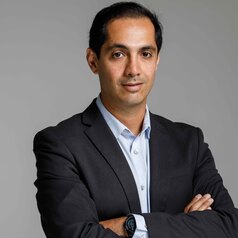
Ali Mashayek
Professor, University of Cambridge
Dr Ali Mashayek is an Associate Professor in the Department of Earth Sciences at the University of Cambridge where he leads the Modelling Ocean Dynamics & Ecosystems Lab (MODEL) and co-directs the AI for Environmental Risks (AI4ER) Centre for Doctoral Training. He works closely with the industry on topics such as Carbon Removal Methodologies and Environmental Risk associated with extreme events (e.g. flooding, marine food security).
For more information, please visit Mashayek.com
Less ![]()
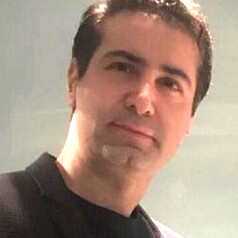
Ali Matin
Department of Civil and Construction Engineering, Swinburne University of Technology
Less ![]()

Ali Sarhadi
Assistant Professor of Atmospheric Science, Georgia Institute of Technology
Dr. Ali Sarhadi is an Assistant Professor of Atmospheric Science at Georgia Tech. Dr. Sarhadi specializes in hurricane dynamics and risk assessment; climate risk and resiliency; compound and cascading dynamics, tropical hydrometeorology, and machine learning and manifold learning.
Less ![]()
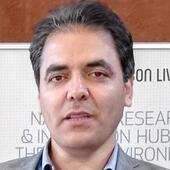
Ali Soltani
Mid-Career Researcher, College of Medicine and Public Health, Flinders University
Less ![]()
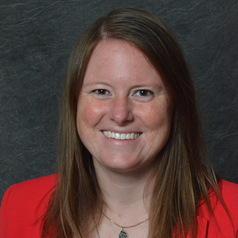
Ali M. Bramson
Assistant Professor of Earth, Atmospheric, and Planetary Sciences, Purdue University
Dr. Bramson studies processes that affect the surfaces of solid bodies in our solar system. She tackles these problems using a combination of spacecraft remote sensing observations and theoretical modeling, supplemented by occasional field work at terrestrial analog sites and experimental studies. Her research on Martian mid-latitude ice is helping to shape the future of in situ resource utilization and human exploration of Mars.
Less ![]()
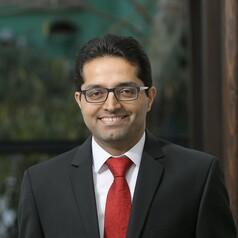
Ali Pourmousavi Kani
Senior Lecturer of Electrical and Mechanical Engineering, University of Adelaide
A PhD in Electrical Engineering and an IEEE Senior Member, I (you can call me Ali) am a Lecturer at the School of Electrical and Electronic Engineering (EEE), the University of Adelaide (UofA). Prior to joining UofA, I worked for California ISO, NEC Laboratories America, Technical University of Denmark (DTU), and the University of Queensland for more than five years. My research interests are mainly renewable energy and the smart grid. My research involves a holistic view of electrification, battery integration and demand response using optimisation, artificial intelligence, and time series methods. You can read more about my research on the Research page.
I obtained his B.Sc., M.Sc., and PhD with high honours in Electrical Engineering (emphasis on power systems). I have published my research findings in 50+ journal & conference papers and posters. You can see a list of my papers and a copy of them on the Publication page. I enjoy spending time with family and friends in nature, reading and programming.
Less ![]()
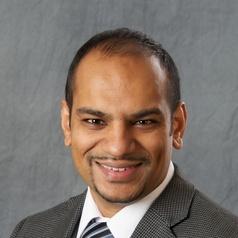
Aliasger K. Salem
Associate Vice President for Research and Bighley Chair and Professor of Pharmaceutical Sciences, University of Iowa
Dr. Aliasger Salem is the Associate Vice President for Research for the University of Iowa, Bighley Chair and Professor of Pharmaceutical Sciences and an elected member of the American Association for Pharmaceutical Scientists (AAPS) Board of Directors. Dr. Salem is Leader of the Experimental Therapeutics Program at the Holden Comprehensive Cancer Center and co-director of the Nanotoxicology core at the Environmental Health Sciences Research Center. He was educated in applied chemistry at Aston University of Science and Technology, Birmingham, UK (BSc 1998; 1st class honors). He received his Ph.D. in Pharmacy at the University of Nottingham, UK in 2002. He then received postdoctoral training at Johns Hopkins School of Medicine until 2004. He is an elected fellow of the AAPS, an elected fellow of the Controlled Release Society (CRS), an elected fellow of the American Association for the Advancement of Science (AAAS) and an elected fellow of the American Institute for Medical and Biological Engineering (AIMBE). His research interests are primarily focused on advanced drug delivery systems. He is the author of over 250 peer-reviewed scholarly publications and has published in journals that include Science Advances, Nature Nanotechnology, Nature Materials, Nature Reviews Urology and Science Translational Medicine. Dr. Salem regularly serves on international and national grant review panels for organizations that include the American Cancer Society, the National Institutes for Health (NIH), and the Department of Defense: Congressionally Directed Medical Research Programs. For example, he is currently a chartered member of the NIH Advancing Therapeutics study section. In 2020, Dr. Salem was awarded the Hancher-Finkbine Medallion and the Leadership in Research Award by the University of Iowa for life-time achievements in drug delivery research over his career to date.
Less ![]()
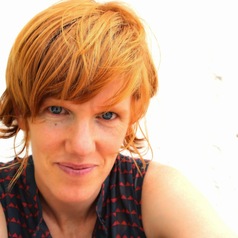
Alice Beban
Senior Lecturer in Sociology, Massey University
I am a social scientist focusing on rural social change, feminist theory, and environmental sociology. I conduct research in Aotearoa New Zealand and Southeast Asia.
Less ![]()

Alice Bloch
Professor of Sociology, University of Manchester
Alice Bloch is Professor of Sociology at the University of Manchester. Alice's current research explores inter-generational memory practices among the descendants of Holocaust survivors who have replicated their ancestors Auschwitz concentration camp number on their own body. Alice is writing a book from this current research.
Alice's research has focussed on forced migration and has been funded by the ESRC, the Paul Hamlyn Foundation, the British Academy/Leverhulme Trust, the Department for Work and Pensions and others. Alice's authored books include 'Living on the Margins: Undocumented migrants in a global city' (with Sonia McKay Policy Press, 2016) and 'Sans Papiers: The social and economic lives of young undocumented migrants in the UK' (with Nando Sigona and Roger Zetter Pluto Press, 2014). Alice edited 'Forced Migration: Current Issues and Debates', (with Giorgia Dona, Routledge, 2019).
Alice is a Fellow of the Academy of Social Sciences.
Less ![]()
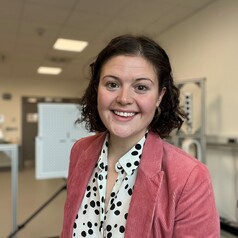
Alice Bullas
Senior Research Fellow, Sports Engineering Research Group, Sheffield Hallam University
Dr Alice Bullas is a Research Fellow in advanced human measurement, specialising in manual anthropometry and 3D surface imaging, in the Sports Engineering Research Group (SERG), in the Academy of Sport and Physical Activity. Alice delivers on an array of sports and health research and innovation projects including the Sheffield Innovation Partnership (SIP), Grow MedTech (GMT), Yorkshire Obesity Research Alliance (YORA) and the Advanced Wellbeing Research Centre (AWRC) Wellbeing Accelerator Programme and the AWRC Advanced Human Body Measurement Programme. She is actively involved in anthropometry research, peer review, international standards development and working groups, and education - supervising several PhD students and teaching on the MSc in Sports Engineering and BSc in Sports and Exercise Science courses.
Less ![]()
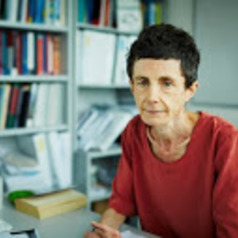
Alice de Jonge
Dr Alice de Jonge is a senior lecturer in the department of Business Law and Taxation.
Alice has travelled extensively throughout Asia and speaks Mandarin and Chinese. She lived and studied in Shanghai (Fudan University), and was a visiting scholar at Nanjing University. She has provided written advice for the Central and East European Law Initiative of the American Bar Association, and provided advice in cases before the Refugee Review Tribunal.
Alice was awarded the LawAsia Research Award in 1998, and has also been the recipient of a number of travelling scholarships and research grants.
Alice has also been involved in the design and delivery of a number of AusAid-funded international trade law short-courses aimed at government officials from Vietnam, Thailand, Laos, Cambodia and Burma.
Her research and supervision interests include corporate governance in Asia, cross-border issues of corporate governance in China and Hong Kong, women directors in China and India, Australia-China relations, international law and its applicability to transnational corporations, sovereign bankruptcy, and international law and unequal treaties in international law.
Less ![]()
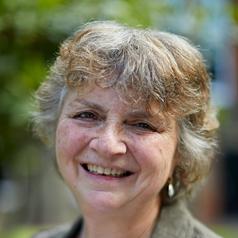
Alice Deignan
Professor of Applied Linguistics, University of Leeds
Researcher and teacher in applied linguistics, with particular interests in lexical approaches to language analysis and teaching, and applications of corpus linguistics to the study of metaphor, metonymy and pragmatics.
Less ![]()

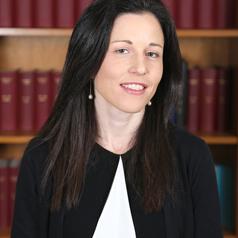
Alice Goisis
Associate Professor of Demography and Deputy Research Director in the Centre for Longitudinal Studies, UCL
I am Associate Professor in Demography and Research Director at the Centre for Longitudinal Studies located in the UCL Social Research Institute.
My research interests span a number of substantive areas in social demography and epidemiology. My research has examined the association between advanced maternal age and child well-being, with a particular focus on whether and how it varies across different groups of the population and time periods. I am currently the PI of an ERC Starting Grant investigating families the effects of Medically Assisted Reproduction on children, adults and families. More generally, I am interested in whether, and if so how, family processes are associated with children and adults’ well-being. My research has been published in demography, multidisciplinary and medical journals such as the Lancet, PNAS, Demography and the International Journal of Epidemiology.
Less ![]()
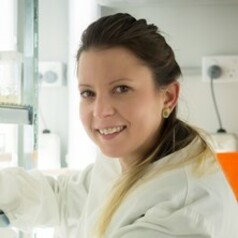
Alice Hayward
Molecular Biologist, The University of Queensland
I am a plant molecular physiologist in the Mitter Lab at the Queensland Alliance for Agriculture and Food Innovation. Our team primarily focuses on innovating tissue culture technologies for plant species in close partnership with industry and stakeholders. We deliver world-first propagation protocols for difficult and recalcitrant crops species as well as biotechnologies for crop improvement and cryobanking of recalcitrant plant germplasm. We also have a dedicated research stream in crop genomics and molecular biology. We aim to improve efficiency and resilience in our plant industries as well as support conservation of our key germplasm and endangered species. Our flagship species has been the avocado, and our team has been involved with producing the first genome sequence for avocado as well as the world's first commercial tissue culture pipelines for avocado propagation and cryopreservation. We are now extending this to other key crop species such as macadamia, as well as endangered native species with collaborators. Our ongoing vision is continued extension of these technologies to new species and crops for both horticultural and environmental outcomes.
Less ![]()

Alice Hazlehurst
Postgraduate Researcher, University of Leeds
I am a postgraduate researcher at the University of Leeds School of Design. My research interests lie in quantifying the release of microplastics from the domestic laundry of textile fabrics.
Less ![]()

Alice Hunter
Senior Lecturer in Sports Coaching, Bournemouth University
First graduate of the new Taught Doctorate in Sports Coaching programme from Cardiff Metropolitan.
Full-time lecturer for the past 5 academic years across two different institutions, delivering on Modules concerned with Applied Coaching Theory, Talent Development in Sport, and Research Methods.
Current National Teams Officer - British Softball Federation.
Former international Korfball player (Wales) and internationally qualified korfball coach with experience from grass-roots to international youth level.
Less ![]()
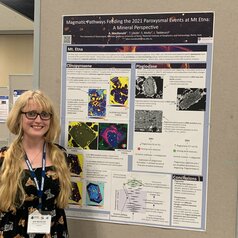
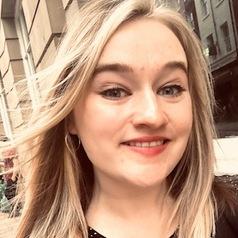
Alice Masterson
Alice Masterson is a Visiting Lecturer in Music at the University of York and Fordham London. Her research interests include posthumous fame; the singing voice and its ascribed meanings; audience perception of ‘authenticity’; and women's experiences in music. Her doctoral thesis explored the posthumous legacies of female musicians who were vilified for their lifestyles while living, particularly the ways in which they seem to find public ‘redemption’ through death.
Less ![]()

Alice Moore
Assistant Professor in Public Management and Public Policy, University of Birmingham
I'm an Assistant Professor in the School of Government at the University of Birmingham. I research public procurement and governments’ relationships with private and non-profit organizations. My research focuses on the ways in which different methods of public service delivery affect the quality of public services and the nature of interactions between citizens and government. My work focuses mostly on the UK, but I also do research in Europe and other anglophone countries. I've also researched how public organizations have dealt with budget cuts and austerity measures.
I have worked for the Government Digital Service (part of the UK Cabinet Office) on the team responsible for GOV.UK (the UK government website). I advised on policy for how government communicated information and provided access to services online and managed cross-departmental engagement.
Less ![]()

Alice Norton
Lecturer in Psychology, University of Sydney
Dr Alice Norton is a lecturer, clinical psychologist, and supervisor in the Clinical Psychology Unit, School of Psychology. Her broad interests are in models and therapy for anxiety disorders, mood disorders, and complex presentations.
Alice’s research explores the nature and treatment of anxiety and mood disorders within a cognitive-behavioural and schema therapy framework. She has a particular interest in complex presentations, including complex trauma, personality disorders, eating disorders and comorbidity. She is interested in furthering understanding of the aetiological and maintaining factors in these presentations in order to enhance treatment approaches.
Alice has worked clinically across a range of settings, including NSW Health, non-government, and private practice, and continues to maintain a small clinic. She is passionate about the supervision and mentorship of clinical and research students, and about enhancing teaching and learning practices.
Less ![]()

Alice Welsh
Research fellow, University of York
LLM in International Human Rights Law and Practice (York), PhD Law (York)
I joined York Law School in 2011, where I completed an LLB and then an LLM at the Centre for Applied Human Rights. I will also be completing an Economic and Social Research Council PhD studentship on EU workers’ social rights in the UK in 2020, where I have undertaken placements at the AIRE Centre and Glendon College, York University in Toronto. I am currently a Research Fellow working on the EU Legal Action Research Clinic - a ESRC Governance After Brexit project (EEA PSRC).
Prior to this, I have worked at the Public Law Project as a Research Fellow looking at the EU Settlement Scheme and as a caseworker at the Refugee Council.
Less ![]()
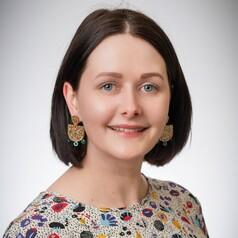
Alice Witt
Research Fellow, Social and Global Studies Centre, RMIT University
Dr Alice Witt researches the exercise of governing power in the digital age, focusing on the intersections of regulation, technology and gender. In addition to contributions to edited volumes, her socio-legal work has appeared in journals such as the UNSW Law Journal, Artificial Intelligence and Law, and Feminist Media Studies.
Less ![]()

Alice Akinyi Kaudia
Associate Lecturer, University of Nairobi
Dr Alice Akinyi Kaudia attained her PhD qualifications in 1996 from the University of East Anglia, the United Kingdom. She served at Kenya Forestry Research for 1.5 decades (1988-2003).
Her sequent focus on development oriented reassert include : (i) Associate Lecturer at Institute of Climate Change and Adaptation, University of Nairobi (2016 to date) with focus on teaching post graduate students, research supervision and review of research proposals by post graduate students. (ii) She is also an affiliate at Tangaza University College where she has been one of the four Africa juries (2022 and 2023) for small research grants through the Service Learning program. This program covers Catholic Higher Education Institutions in seven region across the word. It aims at enabling students to apply lessons learnt in classroom situation to real life for experiential learning. The research grants are awarded competitively.
Alice has published in the field of agroforestry, wetlands management, and climate change, climate change insurance as adaptation measure and air pollution.
Less ![]()


Alice Lux Fawzi
PANTHER Engineering Project Manager and Associate Director of the Center for Traumatic Brain Injury, University of Wisconsin-Madison
I am the Project Manager for a large interdisciplinary DoD-funded TBI research program (PANTHER) and the Associate Director of the Center for Traumatic Brain Injury at the University of Wisconsin-Madison. I have been researching the physics-based causes of mild traumatic brain injury since 2016 with the goal of predicting and preventing injury.
Less ![]()
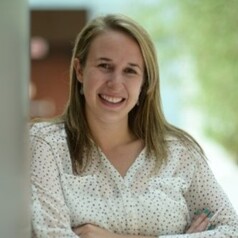
Alicia Atkinson
Research and Innovation Officer at the Wealth and Work Futures Lab, Lindy Institute for Urban Innovation, Drexel University
Alicia Atkinson is the Research and Innovation Officer at the Wealth and Work Futures Lab, based out of the Lindy Institute at Drexel University. As a researcher, advocate, somatic practitioner, and systems thinker, she focus on expanding economic and racial justice in the Philadelphia region and beyond. She brings a deep commitment to centering the community in decision-making to shift systems towards equity and justice.
In her prior leadership roles, she’s been responsible for research, policy development, and advocacy work centered on expanding financial security for low-income communities. Most recently, as the Managing Director of Financial Empowerment at United Way of Greater Philadelphia and Southern New Jersey (UWGPSNJ), where she was responsible for aligning strategic direction to community needs and opportunities, cultivating partnerships, and integrating philanthropic investment to support families, communities and financial security initiatives in the region.
Previously, she was the Managing Director at The Prosperity Agenda, where she led new strategic initiatives and managed place-based projects rooted in the wisdom, experience, and expertise of families enduring economic inequality. She led the research, design, and evaluation of innovations, such as Money Mindset Cards, which honor lived and living experience in financial conversations. Prior to that, she was a Policy Analyst with the Government Affairs team at Prosperity Now, where she promoted effective policies and programs to expand savings, credit building, financial coaching, and integrated service delivery.
Alicia holds a Master’s in Public Policy from the Heller School for Social Policy and Management at Brandeis University and a Bachelor of Arts in Psychology and Legal Studies from the University of Massachusetts Amherst. She was a Graduate Research Assistant at the Institute for Economic and Racial Equity, working exclusively on the Leveraging Mobility Project. She also co-authored the report “Employment Capital: How Work Builds and Protects Family Wealth and Security,” which highlights the importance of quality work-based policies for low- and moderate-income workers in preserving and growing assets overtime.
Less ![]()
- Market Data





















